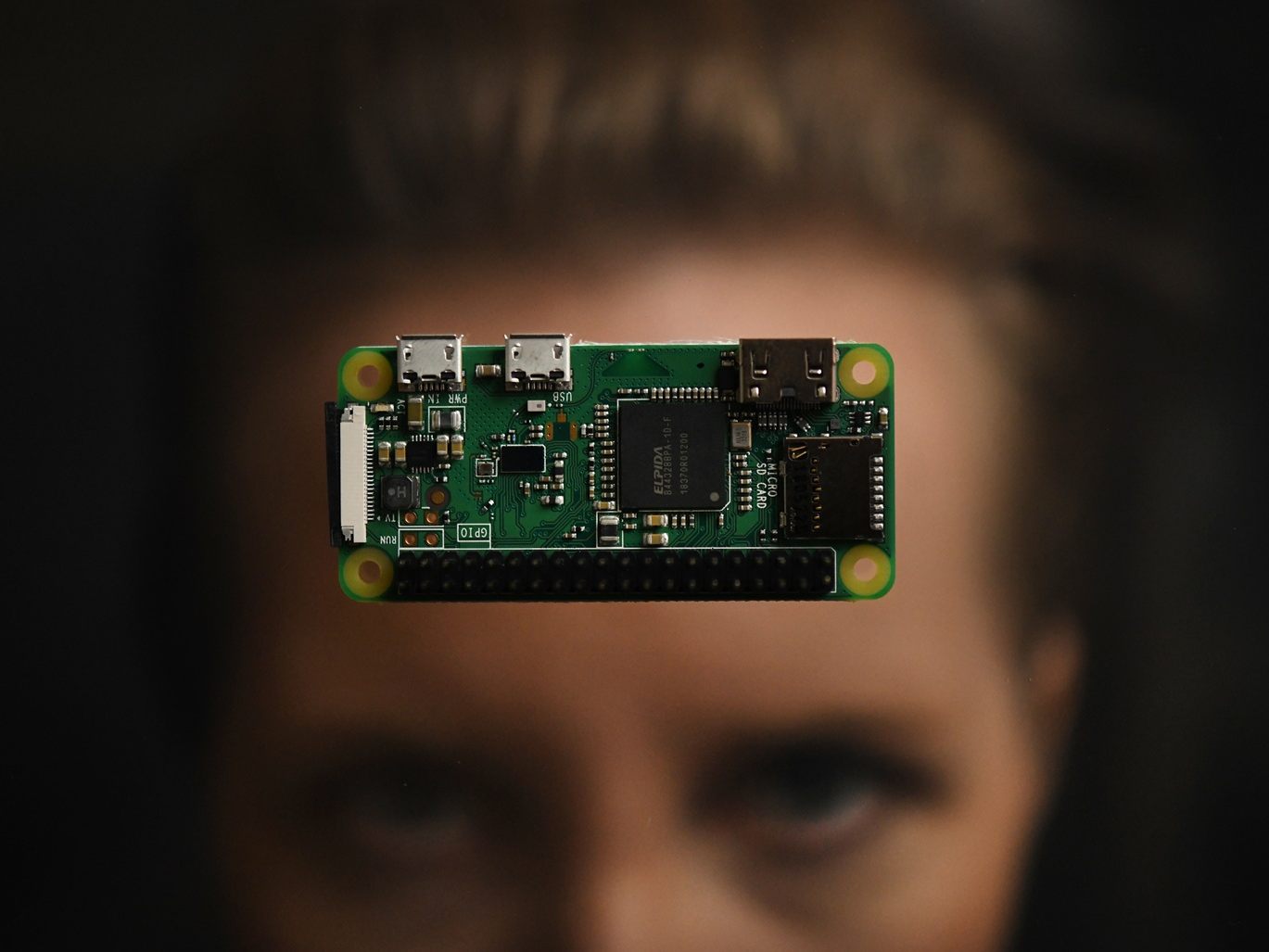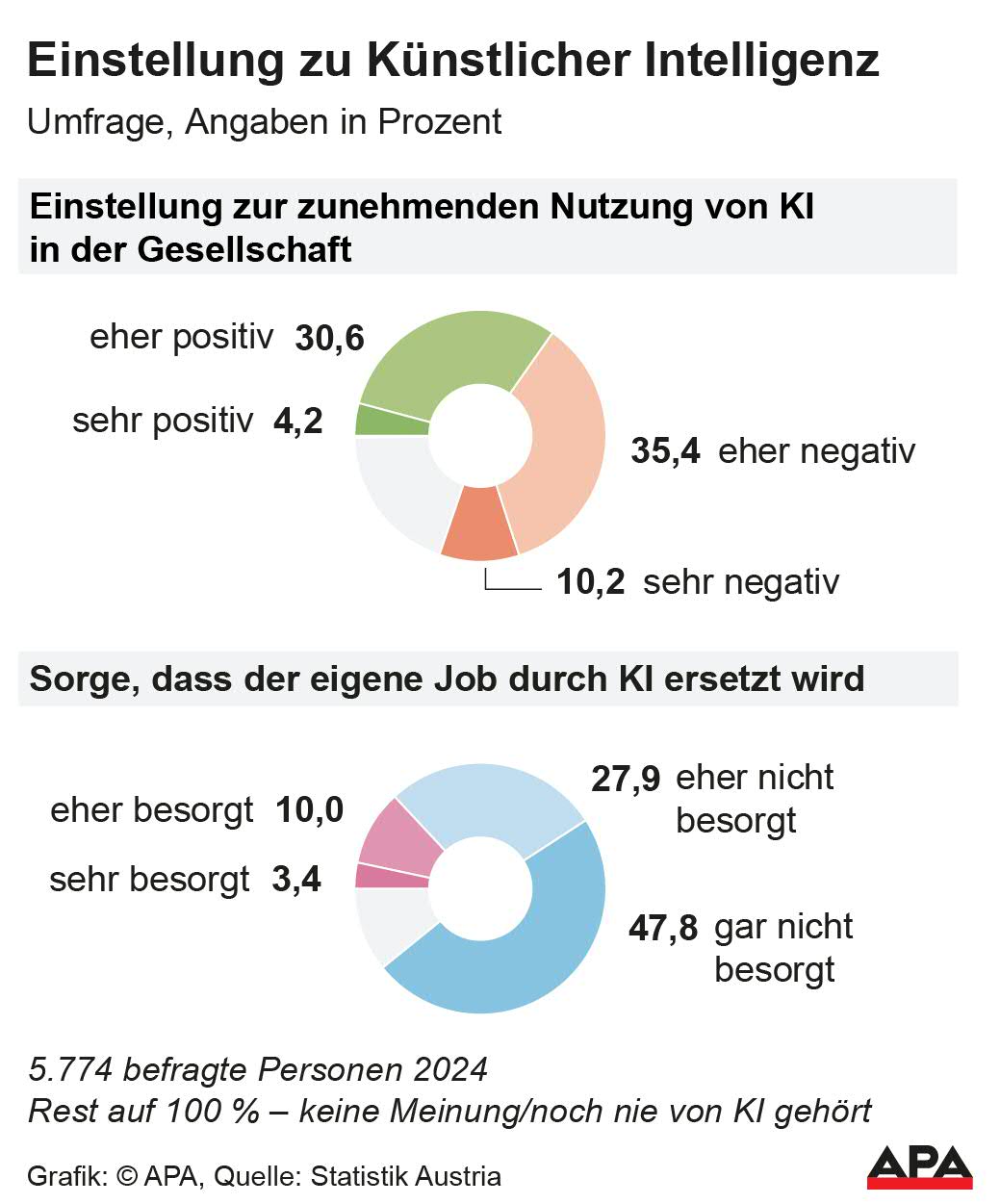How Much People in Austria Know About AI

Currently, around 73 percent of people in Austria have little to no knowledge of Artificial Intelligence (AI). This was revealed by a special survey conducted by Statistics Austria on behalf of the federal government, which was published on Thursday. According to the survey, 46 percent view the increasing use of AI as rather to very negative. Only 43 percent consider it useful for their profession.
Alexander Pröll, State Secretary for Digitalization, sees both a wake-up call and a mandate: "AI is a future technology that we must not close ourselves off to." The "Digital Competence Initiative" will receive its own focus, because: "The best technical solution is useless if it cannot be used by people." An "AI Competence Action Plan Austria" is to be developed by the end of the year for cross-departmental planning and implementation.
Knowledge about AI limited
Only five percent stated that they have a lot of AI knowledge, while at least 22 percent felt they had a lot of knowledge. However, the majority rated their own know-how as poor: 46 percent responded that they knew little about AI, and 23 percent very little. Five percent had never heard of Artificial Intelligence.
Overall, slightly more people are negatively than positively disposed towards the increased use of AI. Those who are open-minded are mainly young, highly educated, and male individuals. There were no significant differences between individuals with completed compulsory schooling, apprenticeships, or vocational middle schools (BMS). Individuals with a high school diploma had more than one and a half times the chance of assessing the increasing use of AI positively compared to compulsory school students. Among university graduates, the value increased to almost three times compared to individuals with compulsory school education.
Age and Gender
16 to 24-year-olds were the most positively inclined. 25 to 34-year-olds differed practically not at all from this group. Among 35 to 44-year-olds, the chance of assessing the increasing use of AI positively decreased by about a third, and among the older age cohorts by about half.

The likelihood of women viewing the increasing use of AI in society as positive decreased by about a third compared to men. "With the cross-departmental initiative 'SheGoes AI', which is also anchored in the government program, the proportion of women in the AI sector is to be increased together with partners and stakeholders," emphasized Pröll.
AI in Professional Life
People who are employed were asked how they assess the usefulness of AI in their profession. Only three percent of employed individuals had never heard of it, yet one in eight employed persons had no opinion on the matter. Positive and negative assessments are roughly balanced, with eleven percent finding it very useful and 32 percent rather useful, while 23 percent find it rather not useful and 19 percent not useful at all. Only a few employed individuals are very (three percent) or rather concerned (ten percent) that AI could lead to the loss of their job.
No Need Detected in Some Cases
Reasons why generative AI tools were hardly used: Almost nine out of ten non-users see no need to generate texts, images, or other content with AI. For almost half of the respondents, concerns about data protection and privacy play a role. Other reasons include lack of or insufficient knowledge (43 percent), quality concerns (40 percent), and ethical concerns (37 percent). About a third cite legal concerns and a quarter lack knowledge about the existence of AI tools.
The survey "ICT Usage in Households" 2024 - Special Evaluation "Artificial Intelligence - Usage and Attitude in Austria" was conducted by Statistics Austria on behalf of the federal government. The net sample comprised 4,445 households or 5,774 individuals.
(APA/Red)
This article has been automatically translated, read the original article here.
Du hast einen Hinweis für uns? Oder einen Insider-Tipp, was bei dir in der Gegend gerade passiert? Dann melde dich bei uns, damit wir darüber berichten können.
Wir gehen allen Hinweisen nach, die wir erhalten. Und damit wir schon einen Vorgeschmack und einen guten Überblick bekommen, freuen wir uns über Fotos, Videos oder Texte. Einfach das Formular unten ausfüllen und schon landet dein Tipp bei uns in der Redaktion.
Alternativ kannst du uns direkt über WhatsApp kontaktieren: Zum WhatsApp Chat
Herzlichen Dank für deine Zusendung.








